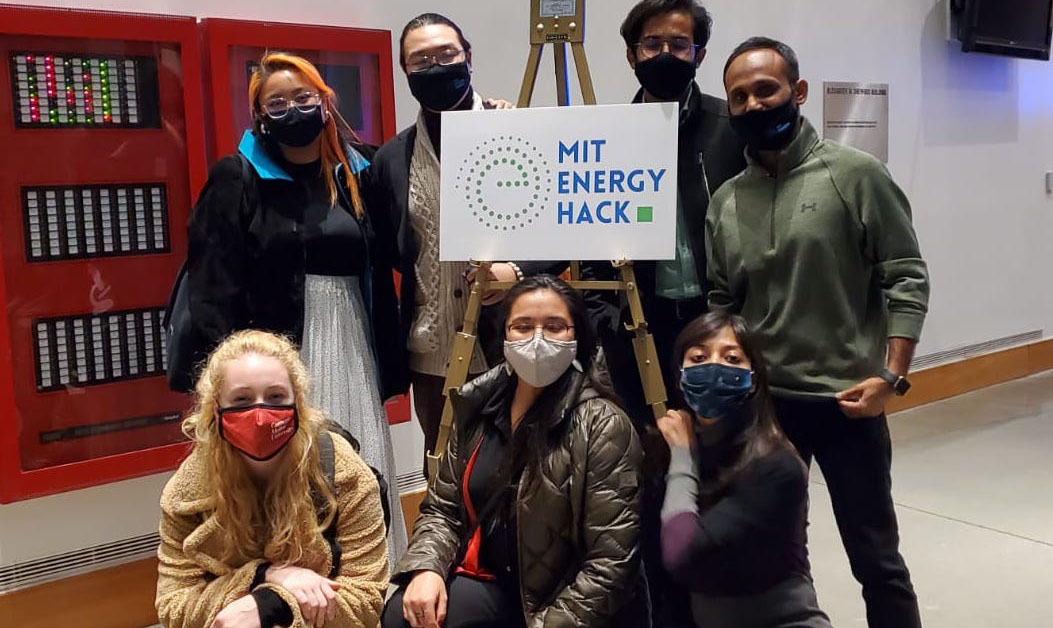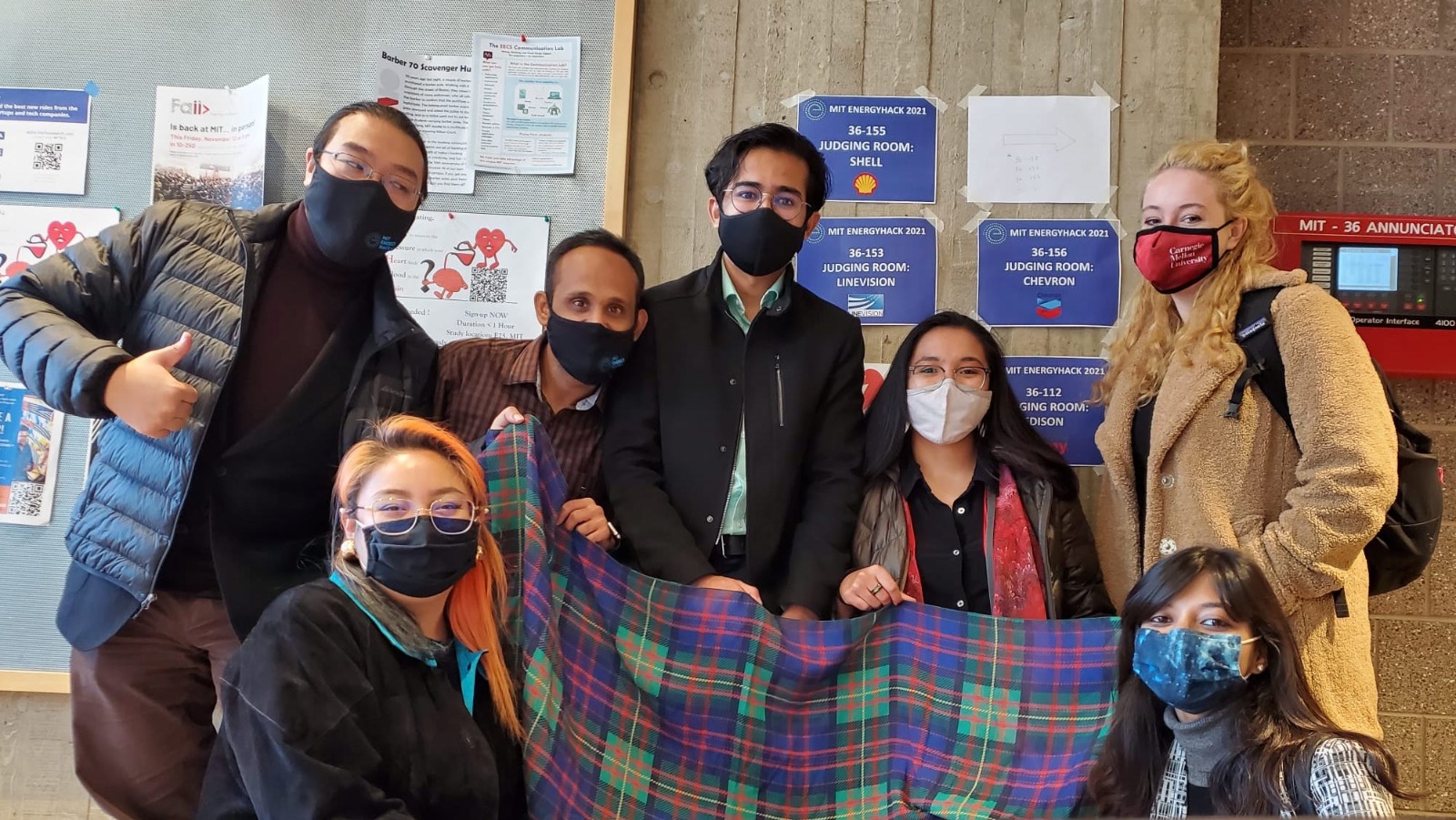
CMU EST&P Team Named Finalists in National Energy Hack Competition
By Alexandra Kramer, Wilton E. Scott Institute for Energy Innovation Intern
Media Inquiries- Digital Communications Manager
Seven students from Carnegie Mellon's Energy Science, Technology and Policy program traveled to Cambridge, MA to compete in the 8th annual MIT Energy-Hack earlier this November. The 36-hour competition brought together over 50 university teams in a hybrid format. The Terawatt Tartans, one of the two CMU competing teams, won the Edison Energy Challenge.
The annual competition aims to bring opportunities for learning, problem solving and networking to teams of students both pursuing undergraduate and graduate degrees as they develop rapid, innovative solutions to the problems in energy and climate that our society faces today. The teams and sponsors alike were diverse across disciplines, degrees, and interests.

Participants were presented with challenges from seven industry partners during the opening ceremony that addressed pressing needs related to energy and climate. Students broke out into teams and selected their challenges, where they then had 36 hours to devise a solution to present to the judges. This presentation consisted of a five-minute presentation with an additional five minutes for questioning. Winners from each seven challenges competed in the closing ceremony, where they presented in front of the final three judges for three grand prizes.
The first team from CMU, ‘Energetic’, presented their solution to the LineVision challenge titled ‘Quantifying the Environmental and Consumer Benefits of LineVision’s Technology.’ Their analysis found that PJM’s cost savings estimation with AVC (optimal Dynamic Voltage Control System) would decrease less than 2% while LineVision can create a 20% increase while cutting the GHG emission to half. This team included graduate students from the Energy Science, Technology and Policy program: Peng Sang, Rahul Jha, and Rhiva Singh.
The second team, ‘Terawatt Tartans’, presented their solution titled ‘The Tartan Method’ which utilized a collaborative and iterative decision-making process to compare qualitative objectives and prioritize climate impact, cost, and societal co-benefits for any renewable energy project. Their solution referenced research on holistic multi-criteria decision analysis evaluations of sustainable electric generation portfolios from Scott Affiliate Faculty, Dr. Destenie Nock. The team came in first place in the Edison Energy Challenge, and competed in the finals presenting again to the final judging panel. This team included graduate students from the Energy Science, Technology and Policy program: Adrielle Cailipan, Sabrina Curtis, Pranav Gupta, and Alexandra Kramer.
Industry partners for this event were Smartflower, Chargepoint, LineVision, Chevron, Edison Energy, Shell, and Sterlite Power. Additional sponsors for the event included Iberdrola, MIT Chemical Engineering, the MIT Energy Initiative, the MIT Department of Physics, MIT EECS, MIT Office of Sustainability, the MIT Sloan School of Management Sustainability Initiative, and the MIT D-Lab.
Congratulations to all seven CMU students and the 2021 participating teams.
